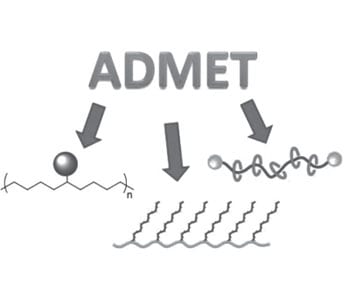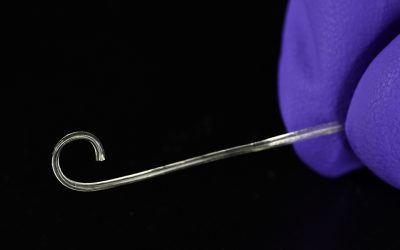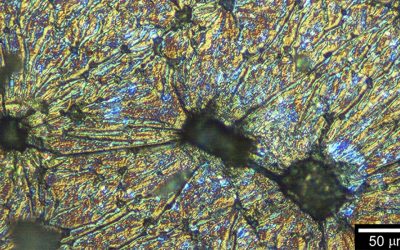 In polymer chemistry, the precise synthesis of complex polymer architectures, such as dendrimers, has always been challenging. A major step forward was provided by acyclic diene metathesis (ADMET) polymerization – a technique to achieve precise control over branch identity and placement in a polyethylene (PE) backbone. Specific monomer design and carefully controlled polymerization conditions are the key for this precision.
In polymer chemistry, the precise synthesis of complex polymer architectures, such as dendrimers, has always been challenging. A major step forward was provided by acyclic diene metathesis (ADMET) polymerization – a technique to achieve precise control over branch identity and placement in a polyethylene (PE) backbone. Specific monomer design and carefully controlled polymerization conditions are the key for this precision.
 Michael D. Schulz (photograph) and Kenneth B. Wagener highlight in their review article the most recent advances in ADMET chemistry and the developement of “precision polyolefins”. Besides the original use of ADMET polymerization for the synthesis of linear polymers, current research efforts have significantly expanded the scope of polymer architectures accessible by this approach. These architectures range from mechanically interlocked polymers, rotaxanes, and polymers with hypberbranching, alternating, or linear-dendron architectures. Further recent innovations in this area are the use of biorenewable sources for ADMET monomers and ADMETpolymers possessing optoelectronic properties.
Michael D. Schulz (photograph) and Kenneth B. Wagener highlight in their review article the most recent advances in ADMET chemistry and the developement of “precision polyolefins”. Besides the original use of ADMET polymerization for the synthesis of linear polymers, current research efforts have significantly expanded the scope of polymer architectures accessible by this approach. These architectures range from mechanically interlocked polymers, rotaxanes, and polymers with hypberbranching, alternating, or linear-dendron architectures. Further recent innovations in this area are the use of biorenewable sources for ADMET monomers and ADMETpolymers possessing optoelectronic properties.
The ADMET polymerization approach is still considered as the only method capable of producing certain PE model compounds and sophisticated polymer structures. Therefore, ADMET is expected to remain an integral part of precision polymer synthesis and polymer chemistry as a whole.
This article is part of the special Best of Macros – Edition 2015 issue, and is now free to read at http://www.best-of-macros.de!

















